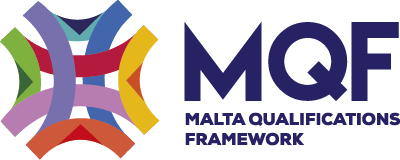Structure of Programme:
The programme is made up of 3 inter-related components:
- Pre-training
- Application of Personality Profiling Tool (DiSC Workplace Profile)
- Twelve contact days training over a 12-month period
- Four 1-hour Coaching Sessions per participant
- Two 2-hour Coaching Sessions per group
The workshops will cover the following topics:
Workshop 1 - Introduction to your APEX Journey using DISC
During this workshop, participants will be given a thorough induction to the programme during which all requirements for eventual qualification of the award will be made clear to them.
The workshop will also look at the DiSC profile tool that participants would have already submitted and received their profile reports. The trainer will explain the origins and research behind the DiSC profiling tool and go through the 4 different dimensions that make up the tool. Throughout the workshop, participants will be encouraged to participate in various discussions and activities to help them assimilate the different profiles to their own and other participants’ profile.
Workshop 2 - Building your Leadership Brand
During this workshop participants will be able to learn about different leadership styles and through a self-assessment identify their own natural leadership style. They will then be guided to practical ways to develop their own leadership brand.
Topics include:
- What is a Brand?
- What is Personal Branding?
- The Importance of Personal Branding
- 7 Steps to Develop Your Personal Brand
- 10 Principles of Personal Branding
Workshop 3 - Developing your Team Culture
During this workshop participants will be introduced to the idea that organisations (just like individuals) have core values and how these values form the basis of the organisational culture. Participants will be able to understand how organisational culture is developed and maintained and how, as leaders, they can use it to foster engagement.
Topics include:
- What is Company Culture?
- Why develop a Company Culture?
- Assessing your company culture
- Why Company Culture Matters
- Understanding Engagement
- Why engagement matters?
Workshop 4 - Managing a Diverse Workforce
During this workshop participants will be introduced to the idea of how diversity can help teams and organisations. Participants will understand the various ways in which workplace practices can harness diversity to bring about a richer more effective workplace.
Topics include:
- What is Workplace Diversity?
- Different forms of Diversity
- The Cultural Map (Meyers)
- The Challenges of a Diverse Workforce?
- The Benefits of a Diverse Workforce?
- Diversity Management VS Equal Employment Opportunity
- How Stereotyping Leads to Discrimination
- Tips for Managing Workplace Diversity
Workshop 5 - Handling Difficult Conversations at Work
During this workshop, participants will be made aware of the importance of using dialogue as a tool to lead their teams. They will be shown how certain difficult conversations can be handled skillfully in order to allow them to solve the issue without damaging the relationship with their team members.
Topics include:
- What makes a conversation difficult?
- Managing our internal dialogue
- Establishing the truth about a situation
- Separating Intention from impact
- Moving from blame to contribution
Workshop 6 - Facilitating Successful Meetings
During this workshop, participants will understand the dynamics of team meetings and how they can be used effectively to build the team, for group decision making and to communicate information/instructions.
Topics include:
- Why have meetings?
- What makes a meeting efficient?
- What makes a meeting effective?
- Types of meetings
- Setting meeting norms
- Planning for a meeting
- How to run meetings
- Following up after a meeting
Workshop 7 - Boosting your Team's Productivity
It’s easy enough to be busy but what matters most is whether you are productive. During this workshop participants will learn how to set up a system that allows them to get the right things done on time, every time.
Topics include:
- Setting up your system to manage your to-dos.
- Managing interruptions and distractions
- Delegating effectively
Workshop 8 - Managing Projects Effectively
Effective and successful project management is a key competence for any manager. This programme gives participants the ability to improve project management performance in time, cost and quality in the process focusing on the stakeholders’ needs and ensuring satisfaction. This programme provides participants with the tools they need to manage projects and related tasks effectively and how to delegate and manage the workload in a structured manner.
Topics include:
- What is a Project (and how it differs to Operational Work)
- The Triple Constraint
- Identifying stakeholders
- The 10 Key Knowledge Areas of Project Management
- The Project Manager’s Role
- The Project Life Cycle
Workshop 9 - Conducting Effective Performance Management
Effective performance management enables employees and teams to understand the goals of the organisation and to identify how individual and team outputs contribute to the achievement of organisational objectives.
This workshop will help participants design and conduct effective performance management systems in a way that develops their team members and aligns the team towards the team’s objectives.
Topics include:
- What is performance management
- The challenges of measuring employee performance
- Analysing employee performance
- The importance of S.M.A.R.T. goal setting
- 10 Steps for Conducting the Formal Appraisal Session
Workshop 10 - Overcoming Team Dysfunctions
During this workshop, participants will be introduced to the work of Patrick Lencioni on teams. In particular they will become familiar with the five dysfunctions of a team and reflect on their own teams and their style of leadership.
Topics include:
- What makes a team
- Different types of teams
- The 5 Dysfunctions of a Team (Lencioni)
- Tips to overcome the team dysfunctions
Workshop 11 - Thinking Strategically Like a Leader
During this workshop participants will be introduced to the main concepts behind strategic thinking and planning. They will learn how to carry out a S.W.O.T. analysis of their organisation and put together a strategic plan including an action plan.
Topics include:
- What is strategic thinking
- The Key Components of a Strategic Plan
- Carrying out a S.W.O.T. analysis
- Setting strategic objectives
- Action Planning
Workshop 12 - Managing and Developing Talent and Way Forward
During this workshop participants will learn how to attract, develop, motivate, and retain productive, engaged employees. Through the techniques shared in this workshop, the participants will be able to create a a learning culture in their organisation that meets its strategic and operational goals and objectives.
Topics include:
- What is talent development?
- What is learning management?
- Key components of a highly effective talent management process
- How to recognise, reward and develop talent
- Building a learning culture
Teaching, Learning and Assessment Procedures:
The programme will include a mix of formative self-assessment, peer-assessment and trainer assessment techniques, including:
- a number of self-assessment questionnaires to encourage the learners to assess and reflect on their individual competency in the skills discussed throughout the programme
- learners are expected to role-play the skills covered in the programme and given feedback by the trainer and peers
- trainer assessment of the learners’ reflective journaling after each session capturing the main points learned during each session, making a commitment to follow up on at least one practical action point and reviewing progress on the commitment made
- self-assessment through multiple choice quizzes after each session to assess the transfer of knowledge and main concepts covered during each session
What’s Included:
- Training by a certified and experienced educator/s
- Detailed course notes
- Funding options

